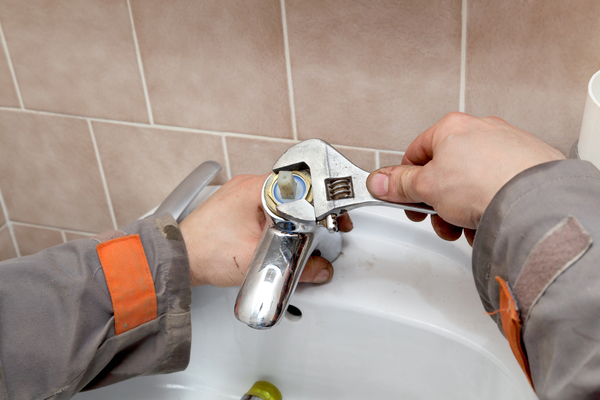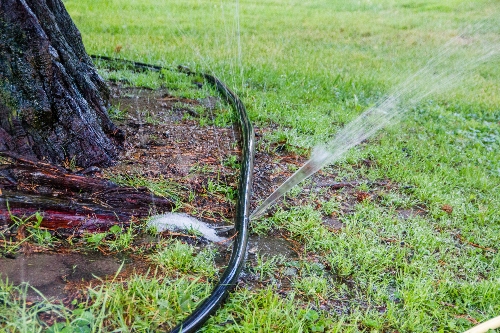The Top 5 Triggers of Water Leaks
The Top 5 Triggers of Water Leaks
Blog Article
This great article below involving Where to Find Water Leaks is pretty much compelling. Read on and make your own conclusions.

"Beware of little expenses. A small leak will sink a fantastic ship." - Benjamin Franklin.
He could not have actually been a lot more right since water leakages in our residences lead to a waste of resources, increasing our water costs. Although this rise may appear minimal at first, it can bring about considerable expenses that can damage your bank. Aside from a rise in expenses, water leakages additionally cause unwanted organic growth, architectural damages, and even electric dangers.
Figuring out if you have a water leak isn't constantly very easy as a result of being unable to see the majority of the pipework in your house. However, If you have had an increase in your water bills lately, noticed water stains on ceilings and also wall surfaces, scented lousy odor, etc. You may want to consider asking for plumbing services to get it had a look at.
There are several sources of water leaks, and also we have assembled the usual reasons below. Check to see if you have had associated concerns in your home just recently.
Blocked drains pipes
Food fragments, dirt, as well as grease can trigger clogged up drains pipes and also obstruct the flow of water in and out of your sink. If undealt with, enhanced pressure within the rain gutters can trigger an overflow and also end up fracturing or bursting pipelines. To prevent blocked drains pipes in your house, we recommend you to stay clear of putting fragments down the tubes as well as routine cleaning of sinks.
High water stress
You saw your house water pressure is greater than normal however after that, why should you care? It runs out your control.
It would be best if you cared due to the fact that your typical water stress must be 60 Psi (per square inch) and although your house's plumbing system is designed to endure 80 Psi. A rise in water stress can put a stress on your house pipes and cause splits, or worse, ruptured pipes. Get in touch with an expert concerning managing it if you ever before see that your home water pressure is higher than usual.
Corrosion
As your pipework gets older, it gets weaker and much more susceptible to rust after the frequent flow of water via them, which can gnaw at pipelines as well as cause cracks. A noticeable indicator of rust in your home plumbing system is discoloration and also although this may be hard to spot due to the majority of pipelines hidden away. Once they are old to make sure a sound plumbing system, we advise doing a regular appointment every few years and alter pipes
Compromised pipe joints
Pipeline joints are the components of our plumbing system where the pipes connect. It is crucial to keep in mind that even though pipelines are created to endure stress as well as last for a while, they weren't designed to last forever; as a result, they would wear away over time. A typical indicator of damaged pipeline joints is excessive noise from faucets.
Broken seals
An additional cause of water leaks in residences is broken seals of residence devices that use water, e.g., a dish washer. When such appliances are set up, seals are set up around water connectors for easy passage of water via the maker. A damaged seal can trigger leak of water when in use.
With little or no understanding of plumbing, comprehending your home's plumbing system enough to fix some of these problems (without repercussion) can be a hassle. Contact plumbing specialists in Pittsburgh, Providence, Rochester, and also environ today, as well as they'll make those concerns disappear.
He could not have been a lot more right due to the fact that water leaks in our residences result in a waste of resources, enhancing our water costs. If you have had a rise in your water costs recently, saw water spots on ceilings as well as wall surfaces, smelt poor smell, and so on. An increase in water pressure can place a strain on your house pipelines and lead to fractures, or even worse, ruptured pipes. An additional reason of water leakages in homes is broken seals of home appliances that use water, e.g., a dishwashing machine. When such home appliances are mounted, seals are mounted around water ports for very easy flow of water via the device.
5 TIPS IN DETECTING A WATER LEAK IN YOUR HOUSE
Water leaks can be hard to find in your home, yet they can be so common. We rely on water every day in our home, which is why a leak can cause big problems. By detecting them early, you can save money and further damage, getting the problem fixed as soon as possible. Here are 5 tips to help you detect a water leak in your home, so you can contact a plumber straight away and get the issue sorted.
Check your water meter
Many people underestimate the value of the water meter in their home. It can be one of the best ways to tell if you have a leak early on, so you can get on top of it before issues start arising. Start by turning off all the water in your home: taps, washing machine, dishwasher, etc. Now take a look at the meter – if it’s still changing with everything turned off, it’s likely you have a fast-flowing leak that you need to get on top of straight away. If nothing changes, then leave your meter for an hour or two and come back to it. Did it change in this time? It’s likely you have a slower leak, which isn’t as urgent but still handy to get fixed so it doesn’t become a bigger problem.
Keep an eye on your bill
Another good way to detect a leak in your home is by keeping an eye on your water bill. It helps if you have a past bill from the same period of time. You can compare like for like and determine whether your water usage has increased significantly. If it has, there may be a leak in your system that you haven’t picked up before. A professional plumber can check through all of your pipes and determine where it is coming from.
Look for damage
If you have a leak inside your home, you will notice damage over time. Take a look at your showers and bathtubs and note whether any of the tiles surrounding the area seem to be discoloured or damaged in any way. There may be water stains, mould or peeling material that has resulted from a build up of moisture over time. Make sure you take a look under sinks at the back of cupboards that don’t get accessed regularly. This is where damage can go unnoticed and build up over periods of time.

We hope you liked our part on How to Find and Prevent Water Leaks in Your Home. Thank you so much for taking time blog. Make sure you take the time to share this write-up if you enjoyed it. Thanks for going through it.
Fast relief, just a call. Report this page